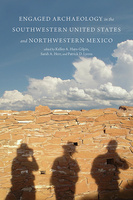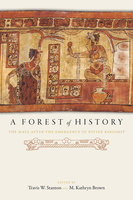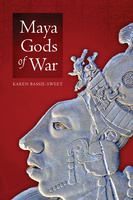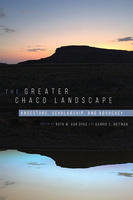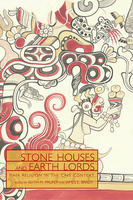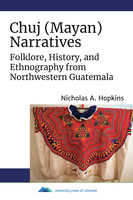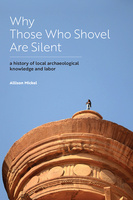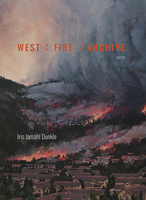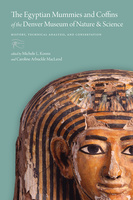
Founded in 1965, the University Press of Colorado is a nonprofit cooperative publishing enterprise supported, in part, by Adams State University, Colorado State University, Fort Lewis College, Metropolitan State University of Denver, University of Colorado, University of Northern Colorado, University of Wyoming, Utah State University, and Western Colorado University.
In 2012, University Press of Colorado merged with Utah State University Press, which was established in 1972. USU Press titles are managed as an active imprint of University Press of Colorado, and they maintain offices in both Louisville, Colorado, and Logan, Utah.
The University Press of Colorado, including the Utah State University Press imprint, publishes forty to forty-five new titles each year, with the goal of facilitating communication among scholars and providing the peoples of the state and region with a fair assessment of their histories, cultures, and resources.
Engaged Archaeology in the Southwestern United States and Northwestern Mexico
This volume of proceedings from the fifteenth biennial Southwest Symposium makes the case for engaged archaeology, an approach that considers scientific data and traditional Indigenous knowledge alongside archaeological theories and methodologies.
- Copyright year: 2021
A Forest of History
The Maya after the Emergence of Divine Kingship
Travis Stanton and Kathryn Brown’s A Forest of History: The Maya after the Emergence of Divine Kingship presents acollection of essays that critically engage with and build upon the lasting contributions A Forest of Kings made to Maya epigraphy, iconography, material culture, and history.
- Copyright year: 2020
Maya Gods of War
Maya Gods of War investigates the Classic period Maya gods who were associated with weapons of war and the flint and obsidian from which those weapons were made.
- Copyright year: 2021
The Greater Chaco Landscape
Ancestors, Scholarship, and Advocacy
The Greater Chaco Landscape examines both the imminent threat posed by energy extraction and new ways of understanding Chaco Canyon and Chaco-era great houses and associated communities from southeast Utah to west-central New Mexico in the context of landscape archaeology.
- Copyright year: 2020
Stone Houses and Earth Lords
Maya Religion in the Cave Context
- Copyright year: 2021
Chuj (Mayan) Narratives
Folklore, History, and Ethnography from Northwestern Guatemala
In Chuj (Mayan) Narratives, Nicholas Hopkins analyzes six narratives that illustrate the breadth of the Chuj storytelling tradition, from ancient mythology to current events and from intimate tales of local affairs to borrowed stories, such as an adaptation of Oedipus Rex.
- Copyright year: 2020
Barbed Voices
Oral History, Resistance, and the World War II Japanese American Social Disaster
- Copyright year: 2018
Why Those Who Shovel Are Silent
A History of Local Archaeological Knowledge and Labor
Why Those Who Shovel Are Silent is based on six years of in-depth ethnographic work with current and former site workers at two major Middle Eastern archaeological sites—Petra, Jordan, and Çatalhöyük, Turkey—combined with thorough archival research.
- Copyright year: 2020
West : Fire : Archive
A poetry collection that challenges preconceived, androcentric ideas about biography, autobiography, and history fueled by the western myth of progress presented in Frederick Jackson Turner’s “frontier thesis.”
- Copyright year: 2021
The Egyptian Mummies and Coffins of the Denver Museum of Nature & Science
History, Technical Analysis, and Conservation
The Egyptian Mummies and Coffins of the Denver Museum of Nature & Science provides replicable findings and consistent terminology for institutions performing holistic studies on extant museum collections of a range of material types and will add substantially to what we know about the effective conservation of Egyptian mummies and coffins.
- Copyright year: 2020

